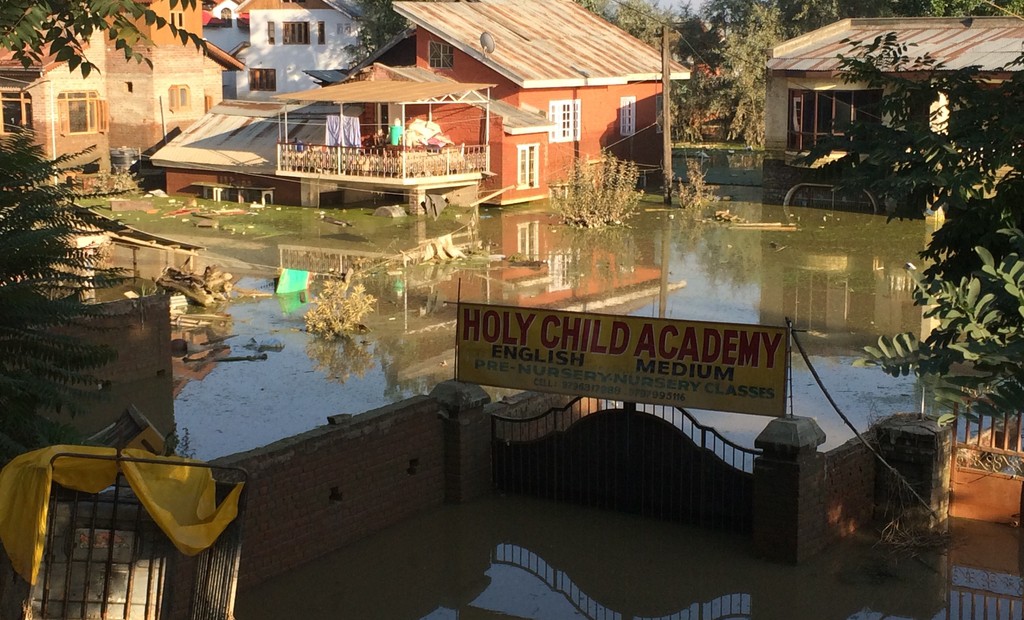“Salam. Safe but badly stuck. Everything lost. Left home at 3 am on the 7th (September). Only way out was to Sopore. Today we reached Hazratbal. Home is still 14 feet under water. But learnt a lot. God is indeed great.” — Text message dated 14 September, Sunday, from Arshid Amin Khan, Communication Officer, ICRC, Jammu and Kashmir.
“Relieved so much to have a message from you. Our delegation head is trying to reach you. Let me know if we can be of any help. We are all with you in this hour of need. Take care.” — Reply from Surinder Singh Oberoi, political and communication advisor, ICRC New Delhi.
Over the past few days, many such messages have been exchanged between the ICRC staff in Jammu and Kashmir (J&K) and those in New Delhi. As floodwaters ravaged the state, the first concern of those working in the New Delhi office of the ICRC regional delegation for India, Bhutan and the Maldives was their colleagues’ safety.
With mobile networks down, we lost contact with all our 33 colleagues — many of them stranded at different places and disconnected from their families — since 7 September. From that Sunday to the next, when we finally established contact with Arshid, one of the last to reconnect with us, we were fraught with worries. It was a time when all ICRC employees came together to support and be there for their colleagues in whatever way they could.

Lists of people affected by the floods who have been reported safe by the authorities. ©ICRC/Atishay Abbhi
The delegation’s first course of action was to locate all staff and ensure their safety and well-being. Mary Werntz, head of the ICRC delegation in New Delhi, said, “We have been carrying heavily our worries about our colleagues’ safety. For a week now, we have had sleepless nights. For me, it was something like losing contact with my own children and not knowing where they are and how they’re doing. I am relieved now that everyone is safe and accounted for.”
Early last week, a plan was put in place to establish contact with the ICRC staff in J&K, and to be on standby with ways and means to assist them. Vasudha Sondhi, the human resources (HR) manager of the delegation, following failed attempts to reach out to the staff through phone calls, sent personalized text messages to them enquiring about their and their families’ safety.
“As and when the messages got delivered, I and other colleagues started receiving frantic calls from our J&K staff. I requested each one of them to update me about their whereabouts and situation at least once daily,” says Ms Sondhi.
The ICRC has now managed to secure a safe place for the staff to gather on the ground. “Some of our staff have suffered great losses; we need to give them time to recover from what they have been through and attend to their families. Continued support to them, from all of us, will be important,” says Ms Werntz.
While looking out for its employees, the ICRC also expresses its solidarity with the people of Jammu and Kashmir. We are in touch with the authorities and have offered our full support to the administration and the government. We are supporting the relief efforts of the Indian Red Cross Society by providing them with requested relief material.
For updates on the relief assistance provided by us, follow us on this blog and our twitter handle @ICRC_nd.
ICRC New Delhi


